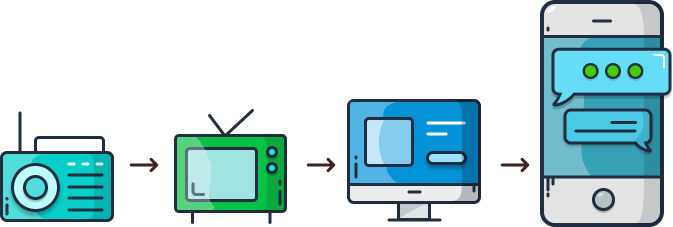Meaningful conversations.
Valuable relationships.
Introducing Conversational Engagement™
Insight-driven and Ai-powered, our Conversational Engagement™ platform helps people get the experience they want, and helps businesses generate more value from customers throughout their journey.
Our Platform
- Creates meaningful, ongoing customer conversations that build trust.
- Moves brands from transactions to long-term relationships that produce significant and enduring brand growth.
CASE STUDY
Helping caregivers navigate the dementia journey.
Healthcare providers, like Bon Secours Mercy Health, use our platform to help patients navigate the healthcare system. See how our Conversational Engagement Platform helps transform the dementia caregiver experience.
OUR SERVICES
Our service offerings all share one advantage – insight. The same, best-in-class insight we have been providing Fortune 100 companies for over 25 years.Insight
From Data to Insight
Insight is not observed, gathered, or collected. It is achieved. Our proprietary market research techniques ensure a fresh, intimate understanding of your consumer’s experience that can be leveraged for bold activation.
Learn more
Precision
Marketing
From Clicks to Connections
With insight as our driver, our precision marketing system facilitates superior brand to consumer connection in the moments that matter – delivering the right message to the right audience at the right moment in time.
Learn more
Conversational
Engagement™
From Transactions to Relationships
Infused with Brado insight and leveraging generative AI, our Conversational Engagement Platform radically transforms consumer engagement, facilitating personalized, dynamic relationships while producing valuable data.
Learn more

Latest Articles
Advertising Will Never Be The Same
Learn how conversational AI can help your brand connect and build trust with your customers. The greatest change in advertising since television is happening. Here’s why…

OUR CLIENTS
Some people feel responsible for making the world healthier — physically, mentally, and emotionally. Those people are our clients.
Latest Articles
No Cookies For You
Three Steps We are Taking Now to Prepare for the Future of Digital Media